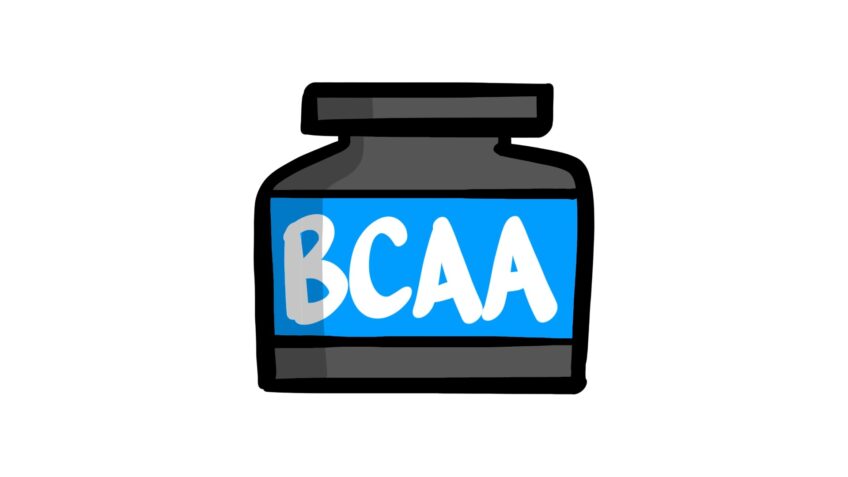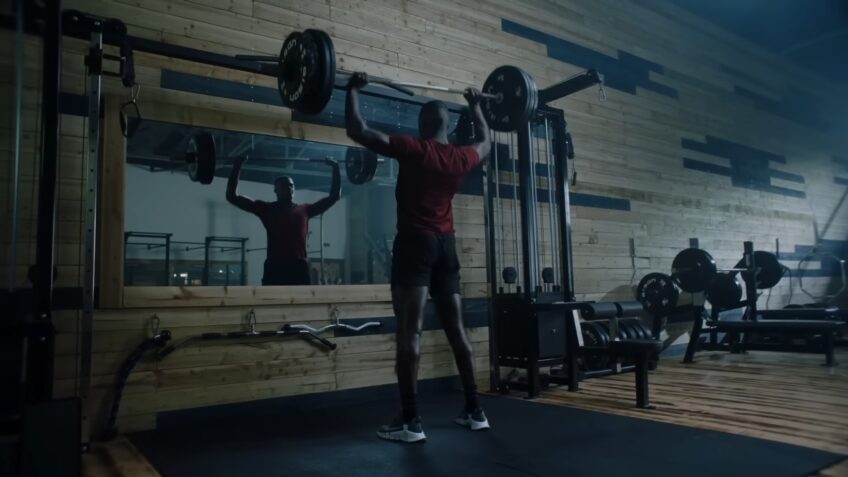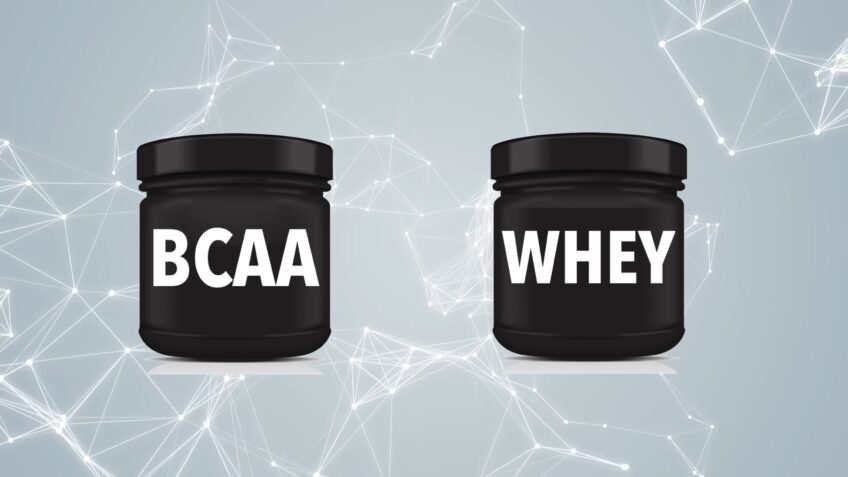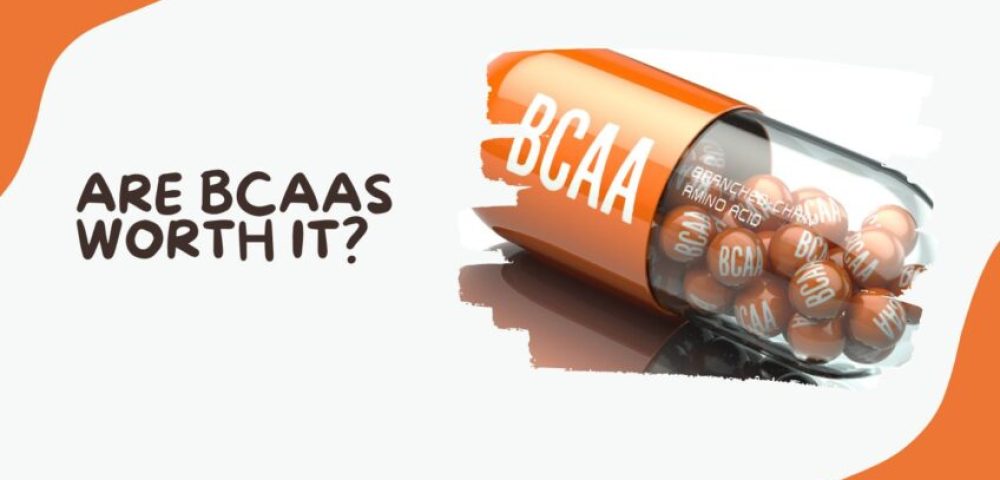If you are someone who works out often and goes to the gym, you are certainly well aware of how crucial it is to get adequate protein and maintain a balanced diet consisting of whole foods. Both athletes and bodybuilders are aware of this.
Protein is regarded as a useful pre-workout substance and fat-burning assistance. If you’ve been researching sports nutrition or seeking advice on how to build muscle, you might already be aware of this. After all, our muscles are “fed” the amino acids from protein sources to aid in their growth.
But have you ever wondered about a particular class of amino acids known as BCAAs, or branched-chain amino acids, which many consider to be the industry standard for foods that promote muscle growth? Are you interested in learning more about these amino acids and finding out if they are truly beneficial or are simply overrated?
If the answer is yes, you came to the right place! We are here to walk you through everything there is to know about BCAAs, including what they are and whether you should include them in your diet or not! Stop wasting time wondering and start uncovering the details about BCAAs right away!
Page Contents
What Are BCAAs?

Nine of the 20 main types of amino acids are regarded as being absolutely necessary. Essential amino acids, in contrast to non-essential amino acids, cannot be produced by the body; therefore, you must consume them through food. The term “BCAAs” refers to a particular class of amino acids with a branched-chain structure, three of which are among the nine essential amino acids.
Leucine, valine, and isoleucine are members of this amino acid family. Your body must produce new muscle fibers at a faster rate than it breaks down your existing muscle if you want to gain muscle. The amino acids produced by some degree of muscle breakdown are used by numerous body tissues and organs for a variety of purposes, making it a physiological process that is beneficial.
This rate is influenced by multiple factors. Consuming protein is one of them. Your muscle fibers are therefore being “fed,” which will accelerate the rate at which they are developing if you consume a lot of protein. And that pace would be higher than the rate at which the fibers in your muscles are destroyed. More muscle development (or synthesis) results from this.
BCAAs—Benefits

1. Improves Muscle Growth
Enhancing muscle growth is one of BCAA’s most striking advantages for both men and women. In fact, if you read any BCAA reviews online, you’re practically going to find information on how these supplements help bodybuilders, athletes, and even ordinary gym attendees grow muscle.
2. Quickens the Recovery Process
BCAAs could be able to aid if you frequently experience soreness following a workout. According to studies, BCAAs can speed up muscle recovery by reducing protein synthesis during exercise and minimizing muscle damage. Additionally, research from Japan discovered that using a BCAA pre-workout supplement decreased muscular soreness and tiredness.
3. Encourages Liver Health
According to one study, persons with specific liver diseases such as cirrhosis, hepatic encephalopathy, and liver cancer may benefit from branched-chain amino acids. Taking them may give protection against liver cancer and may be beneficial for hepatic encephalopathy, according to additional studies.
4. Prevents Loss of Muscle
Sarcopenia, a disorder in which muscle mass declines as we age, is a typical aspect of the aging process. Loss of muscle is another typical side effect of long-term illnesses like cancer. However, according to certain studies, including a lot of BCAAs in your diet could be a simple and efficient strategy to begin slowing muscle atrophy and improving your body composition.
BCAAs Vs. Protein

Anyone who consumes the recommended 50 grams of protein per day is only getting about 4 grams of leucine and perhaps 8 grams of total BCAAs. Protein is typically 5-10% leucine (just leucine alone; which is not including the other two BCAAS). So, you should increase the number of BCAAs in your diet.
The truth is that you require far more overall protein than 50 grams per day. A 165-pound individual needs 120 grams of protein per day to achieve maximum muscle growth, or at least 1.6 grams of protein per kilogram of body weight. This translates to 8 to 10 grams of leucine and doubles that amount of total BCAAs; keep in mind that this is the minimal quantity of protein that the research advises.
By bodybuilding standards, that is extremely low—most coaches advise consuming at least one gram of protein for every pound of body weight daily. Ironically, the majority of those who advocate BCAA supplementation also practice this, eliminating any potential need for BCAAs.
Of course, that only applies to those whose top priority is maximum muscle growth. What about those who just desire to have active, healthy lives? For satiety and muscle protein synthesis, they should consume 1.4 to 2 grams of protein per kilogram of body weight each day.
Now that you are acquainted with what BCAAs are and how they work, you’re probably wondering whether including them in your diet would be worth it or not. Lucky for you, we provide you with the answer below!
Are BCAAs Worth It?

If you’re reading this, there’s a good chance you’re searching for a strategy to speed up your recovery times, lessen delayed onset muscle pain, and build more muscle. BCAAs aren’t guaranteed to be the solution. If you currently consume enough protein, such as 1-2g of protein per 1lb of muscle mass, then BCAAs are more of a luxury than a necessity; but, if you don’t, you should add them to your stack to aid promote the crucial protein synthesis.
It should be remembered that your body has a leucine threshold that you must overcome in order to start protein synthesis. Generally speaking, this is roughly 30g of quality protein, although it varies for each person based on their body type, weight, age, and even degree of exercise. If you don’t reach this threshold, your body won’t activate protein synthesis to the highest degree possible, which will prevent it from performing at its best.
In order to maintain this threshold, bodybuilders eat small meals high in protein throughout the day rather than three large meals or several low-protein meals.
So, if you believe that your protein consumption during a meal is insufficient, BCAAs may aid in increasing your intake of leucine, but having a varied protein-rich diet will always be the healthier option. It is shown in numerous types of research that even with the same quantity of amino acid contents, alternative supplements like protein powders and high-protein meals like chicken have a stronger impact on protein synthesis.
With that being said, it might be better to save your money and not waste it on BCAAs but rather focus on having a healthy diet that will provide you with enough protein that you don’t need supplements like BCAAs.
Do I Need BCAAs When Working Out?

No, you don’t require BCAAs for your exercises, although they can benefit muscle growth and reduce DOMS when consumed together with a diet high in protein. You might want to be cautious when it comes to metabolic health and ask your nutritionist if BCAAs are a good fit for you.
There is no magic pill that will make you fitter, lose weight, or have better health, and you should make sure to remember that. Think about BCAAs in the context of your entire protein and dietary consumption. Keep in mind that full protein sources, rather than simply BCAAs, are what you should concentrate on eating.
And be sure to balance the protein with the carbohydrates and fat, paying attention to the proper serving sizes for your requirements.
Conclusion
While BCAA supplements could be useful in some circumstances, they’re far from being a surefire way to improve your health and fitness. In the end, BCAAs are supplements because they support a foundation, just like other supplements, beneficial or not.
And as always, a balanced, nutritious diet serves as the foundation. However, you might need a supplement if certain conditions prevent you from consuming enough protein or critical amino acids. So, who should consume branched-chain amino acids? Perhaps elderly people, if they don’t get enough protein (particularly if they are vegans).
Other than that, these supplements are only recommended for people with certain conditions that prevent them from ingesting enough protein and amino acids for any reason. Branched-chain amino acids play a crucial and indispensable role in every protein source you eat. On the other hand, supplements containing branched-chain amino acids are now the most overhyped supplement available.
With an in-depth knowledge of supplements and a commitment to wellness, Sharon’s words inspire readers to embark on a transformative journey towards optimal health.
Also Read:
- Understanding UTI Complications - Can it cause spotting?
- Understanding Symptoms And Risks Of Untreated ADHD In Adults
- Can Hemorrhoids Cause Vulvar Pain? - Understanding…
- Perfect Gifts for Healthy Eaters: Ultimate Gift Idea Guide
- The Best Way to Store Popcorn - Ultimate Guide 2024
- How Digitalization is Improving Healthcare Globally…















